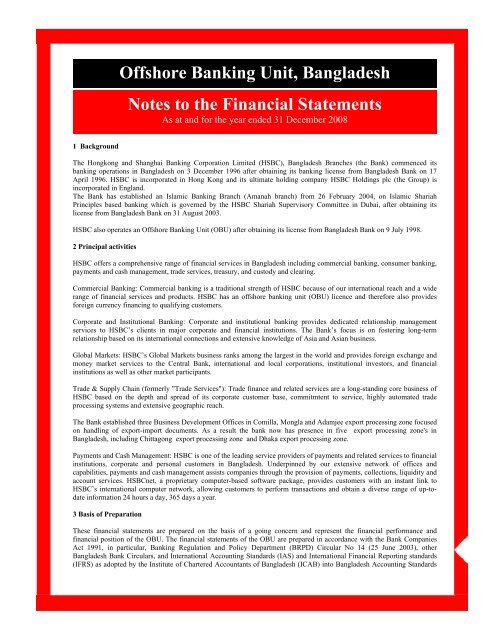Offshore Company Formation: Making Best Use Of Growth Prospective
Offshore Company Formation: Making Best Use Of Growth Prospective
Blog Article
Understanding the Lawful Ramifications of Offshore Company Formation

Lawful Structure for Offshore Companies
When establishing an overseas business, understanding the legal framework regulating its development and procedure is crucial for compliance and danger management. Offshore companies operate under certain legislations and policies that vary from those of onshore entities. The legal framework for overseas companies usually includes arrangements for firm registration, investor demands, supervisor obligations, and tax obligations.
Firm enrollment involves submitting the required paperwork to the suitable regulative authorities in the picked jurisdiction. This process often calls for detailed details concerning the company's structure, investors, and desired tasks. Furthermore, overseas firms have to stick to specific investor demands, such as preserving a register of shareholders and maintaining this info approximately day.
Supervisors of overseas firms have fiduciary tasks to act in the ideal passions of the firm and its investors. By sticking to the legal structure governing overseas firms, businesses can run with confidence while reducing legal risks.


Tax Obligation Implications and Laws
Recognizing the tax obligation ramifications and laws is paramount when taking into consideration the facility and operation of an overseas business. Offshore companies are usually subject to favorable tax regimes, using lowered or zero tax obligation rates on foreign-earned revenue.
Tax regulations for offshore companies vary considerably across jurisdictions, and it is crucial to look for expert guidance to recognize the particular needs and commitments. Comprehensive knowledge of tax laws and guidelines, as well as appropriate tax planning, are crucial to guarantee the certified and effective operation of an overseas firm.
Conformity Needs and Coverage
Ensuring compliance with regulatory demands and preserving precise coverage are necessary aspects of handling an overseas firm effectively and transparently. Offshore business need to adhere to the regulations and regulations of both the territory in which they are included and any other pertinent territories where they perform business.
In enhancement to regulative compliance, offshore firms are commonly based on reporting demands to make sure openness and avoid illegal activities such as cash laundering or tax obligation evasion. Reporting obligations might involve revealing info concerning the business's possession structure, economic activities, and beneficiaries. This details may need to be shown to regulatory bodies, tax obligation authorities, or other governmental companies, relying on the territory.
Maintaining complete and exact documents is critical for demonstrating conformity and responding to any inquiries or audits efficiently. Offshore companies ought to implement durable reporting mechanisms and inner controls to ensure that they satisfy all legal needs and run with honesty.
Asset Defense and Privacy Regulations
In the world of offshore company development, a critical factor to consider is the interaction in between check out here possession security techniques and privacy laws. Offshore territories usually offer improved property protection devices that shield possessions from possible risks such as claims, lenders, or political instability in the home country. By structuring assets within an overseas company, people can protect their wide range and expand their holdings across different lawful structures. Moreover, privacy legislations in overseas jurisdictions add to preserving discretion and anonymity for business owners. These laws limit the disclosure of delicate details, making it challenging for outside events to gain access to details concerning the firm's operations or ownership framework. This degree you can look here of privacy can be helpful for individuals seeking to safeguard their properties from public scrutiny or rivals. Nonetheless, it is critical for individuals to browse these legislations fairly and transparently, making certain compliance with both overseas policies and the legal demands of their home nation. Inevitably, comprehending the intricate connection between asset defense techniques and privacy legislations is critical when taking into consideration overseas business development.
Dangers and Difficulties to Take into consideration
When venturing right into overseas company formation, prudent factor to consider of prospective threats and obstacles is vital for educated decision-making and critical preparation. Furthermore, political instability or adjustments in overseas jurisdictions can pose a threat to the connection of operations and the protection of possessions held by the offshore business.
Difficulties may likewise occur concerning the intricacy of offshore firm structures and the demand for expert legal and financial advice to browse the intricate governing structures of various jurisdictions (offshore company formation). Keeping compliance with differing global laws and regulations, in addition to possible language obstacles and cultural differences, can even more complicate the offshore business development procedure. It is crucial to be conscious of these risks and obstacles before continuing with overseas firm development to alleviate possible risks and make sure a legitimately audio and smooth facility
Verdict
In conclusion, offshore business formation includes browsing complex lawful frameworks, tax obligation ramifications, compliance needs, and personal privacy legislations. Comprehending these aspects is crucial for minimizing challenges and dangers linked with offshore organization procedures. It is vital for organizations and people taking into consideration overseas company formation to seek professional advice to make sure conformity address with regulations and to protect their properties efficiently.
The lawful framework for overseas companies generally consists of arrangements for firm enrollment, shareholder requirements, director obligations, and tax obligations.
Supervisors of overseas companies have fiduciary obligations to act in the finest passions of the firm and its investors. By adhering to the lawful framework regulating offshore business, services can operate with self-confidence while lessening lawful threats.
Furthermore, political instability or changes in overseas jurisdictions can posture a danger to the connection of procedures and the defense of properties held by the offshore business. - offshore company formation
In conclusion, overseas company formation involves browsing complex legal structures, tax obligation implications, conformity requirements, and privacy laws.
Report this page